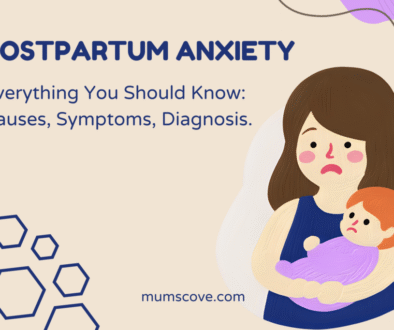How to Know If Your Child Has ADHD: Signs, Symptoms, and Support
Attention-Deficit/Hyperactivity Disorder (ADHD) is one of the most common neurodevelopmental disorders in children. It affects their ability to focus, control impulses, and regulate energy levels. While ADHD can present challenges, early identification and the right support can help children thrive.
What is ADHD?
ADHD is a condition that impacts a child’s attention span, impulse control, and activity levels. There are three main types of ADHD:
-
Inattentive Type: Struggles with focus and organization.
-
Hyperactive-Impulsive Type: Excessive movement and impulsive behavior.
-
Combined Type: A mix of both inattentive and hyperactive-impulsive symptoms.
Signs and Symptoms of ADHD
Inattention
-
Difficulty staying focused on tasks or activities
-
Easily distracted by external stimuli
-
Forgetfulness in daily activities
-
Struggles with organization and following instructions
Hyperactivity
-
Constant fidgeting or squirming
-
Difficulty staying seated for extended periods
-
Excessive talking or interrupting conversations
-
Restlessness and an urge to move

Impulsivity
-
Blurting out answers before questions are finished
-
Interrupting others frequently
-
Difficulty waiting for their turn
-
Making hasty decisions without considering consequences
How ADHD Affects Children’s Daily Life
Children with ADHD may face challenges in various areas:
-
Academics: Struggling with homework, paying attention in class, and following instructions.
-
Social Life: Difficulty making and keeping friends due to impulsivity or hyperactivity.
-
Home Behavior: Difficulty following rules, frequent forgetfulness, and emotional outbursts.
-
Self-Esteem: Negative labels such as “lazy” or “troublemaker” can impact their confidence.
Research has shown that ADHD has a strong genetic component. According to a study published in the Journal of the American Academy of Child & Adolescent Psychiatry, ADHD is highly heritable, with genetic factors accounting for approximately 74% of cases. The study emphasizes the importance of early diagnosis and intervention to help children develop coping mechanisms and thrive academically and socially.
(Reference: Faraone, S. V., & Larsson, H. (2019). Genetics of attention deficit hyperactivity disorder. Journal of the American Academy of Child & Adolescent Psychiatry, 58(2), 237-240.)
Diagnosing ADHD
Professional Evaluation
A diagnosis should be made by a healthcare professional through:
-
Behavior assessments
-
Observations from parents and teachers
-
Medical history reviews
Rule Out Other Conditions
ADHD symptoms can overlap with other conditions such as anxiety, learning disabilities, or sensory processing disorders. A thorough evaluation is necessary to rule out other causes.
Support and Treatment for Children with ADHD
Behavioral Therapy
-
Helps children develop coping strategies and improve focus.
-
Teaches parents effective ways to manage their child’s behavior.
Medications
-
Stimulants and non-stimulant medications can help manage symptoms.
-
Medication should always be prescribed and monitored by a healthcare provider.
Educational Support
-
Individualized Education Plan (IEP) or 504 Plan: Schools can provide accommodations such as extra time on tests and seating arrangements to minimize distractions.
-
Tutoring and Special Education Services: Additional academic support can help children stay on track.
Parenting Strategies
-
Establish a structured routine to create stability.
-
Use positive reinforcement for good behavior.
-
Break tasks into smaller, manageable steps to reduce frustration.

Diet and Lifestyle
-
A balanced diet with minimal processed foods may help.
-
Regular physical activity can reduce hyperactivity and improve focus.
-
Consistent sleep routines support emotional regulation.
When to Seek Professional Help
If your child exhibits signs of ADHD that interfere with their daily life, it’s important to consult a healthcare provider. Early intervention can make a significant difference in their success and well-being.
Conclusion
ADHD is a manageable condition with the right strategies and support. Understanding the signs and seeking early help can set children on a path to success. With patience, structure, and professional guidance, children with ADHD can lead happy, fulfilling lives.
Have you noticed signs of ADHD in your child? Share your experiences or ask questions in the comments below! Don’t forget to follow our blog for more insights and parenting tips on ADHD and child development.
External Resources:
For more information on ADHD, visit:
-
CDC’s ADHD Resource: https://www.cdc.gov/ncbddd/adhd/
-
CHADD (Children and Adults with Attention-Deficit/Hyperactivity Disorder): https://chadd.org/



